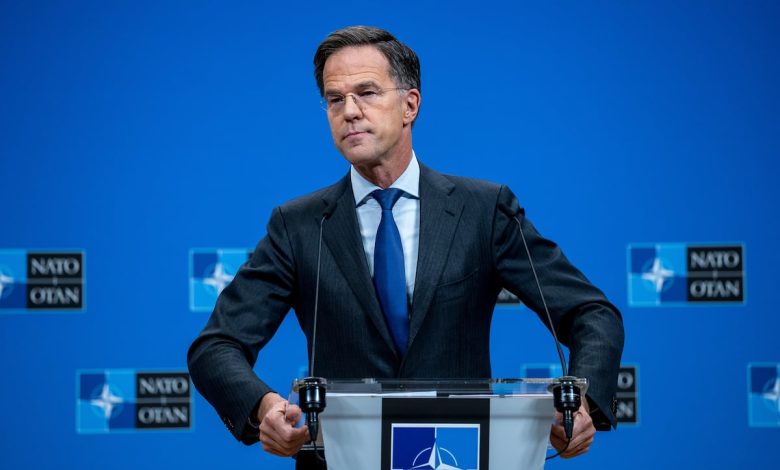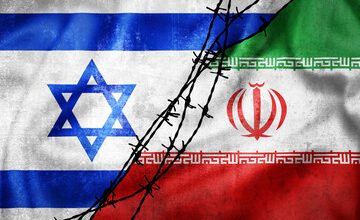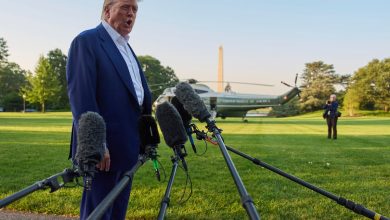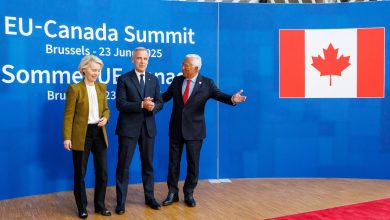NATO wants a ‘focused’ summit amid wars in Iran and Ukraine

As NATO countries gather in The Hague this week, Russia has launched a new offensive in Ukraine, the Pentagon has begun reviewing its spread of forces in Europe and the Trump administration has just conducted unprecedented military strikes against Iran.
But ask many European officials how this will affect this year’s meeting, and they’ll say it won’t.
“It’s a very focused summit,” a senior NATO official, speaking on the condition of anonymity, told reporters last week.
Instead, as the world’s strongest alliance gathers for the first time during the second Trump administration, it’s framing the summit around a narrow set of issues intended, in part, to ensure its success.
While in The Hague, the member countries will make a massive defense spending pledge to allocate 3.5% of GDP spent to defense and another 1.5% to other security-related areas, such as infrastructure.
The commitment would far outpace NATO’s current floor of 2%, which only two-thirds of its countries already meet. And it’s meant to satisfy a key demand of U.S. President Donald Trump, who’s cast doubt on America’s role in the alliance if its members don’t spend more.
“It’s really nothing short of a reset of our approach to defense,” the NATO official said.
And yet, in private, NATO members concede a much greater deal of anxiety.
Even as Russia expands its offensive in Ukraine, the Pentagon is reviewing its posture around the world, an effort expected to conclude by the late summer or early fall. European officials widely expect that review to end with the U.S. reducing its number of forces on the continent, now around 80,000.
In the interim, many European officials are parsing whatever the Pentagon says on its posture for signs of reassurance or warning. The outgoing head of U.S. European Command, Gen. Chris Cavoli, recommended that America maintain its current share of forces on the continent while testifying before Congress in April. But defense officials, particularly those in the Pentagon’s policy offices, have privately signaled that a drawdown is likely.
The staggered announcements have led to some frustration among NATO countries weighing how to fill whatever gaps are left. While at the summit, the alliance will agree to a new set of capability targets — or the share of equipment and units each country should contribute to the whole. If America drastically reduces its own forces on the continent, that would impact what European countries must add themselves.
That sequence of events already has some officials looking past this week’s summit, wary that any decisions may prove obsolete.
“The ambition has been lowered,” a European defense official said of the summit.
Meanwhile, the marquee spending pledge to reach 5% of GDP spent on defense has also been diluted ahead of the summit. Member countries will likely agree to spend 3.5% on core defense priorities within 10 years. But the additional 1.5% pledged toward other areas of security spending, such as reinforced roads and bridges, has some countries concerned about creative accounting.
Spain, which complained that the spending goal itself would cause too much inflation, was hoping for an exemption, its prime minister said over the weekend.
NATO Secretary-General Mark Rutte told reporters in Brussels on Monday such an exception wouldn’t fly. “NATO has no opt-out, and NATO doesn’t know side deals,” he said.
Last year’s summit marking the alliance’s 75th anniversary in Washington focused heavily on defending Ukraine and ensuring an “irreversible” path to NATO membership. The binding communique published afterward also mentioned China for the first time, calling out Beijing’s support for Russia’s war effort.
Neither issue is likely to play a large role in this year’s meeting, multiple European officials said. The Pentagon has reduced its support for Ukraine during the second Trump administration and is also urging European states to focus more heavily on the defense of their own continent, rather than threats elsewhere, such as China.
Looming over the entire summit will also be the recent war between Iran and Israel, which the U.S. joined over the weekend with direct strikes on Iran’s three main nuclear facilities.
Iran retaliated with strikes of its own on American forces in Qatar, Iraq and Bahrain, though no injuries were reported.
As of Tuesday morning, a shaky ceasefire announced by Trump overnight was on the brink of faltering, with reports of ongoing missile strikes.
U.S. officials, including Defense Secretary Pete Hegseth, have spent the year arguing that Europe needs to carry a higher burden so that America can focus on the more pressing challenge of China. But heading into the summit, many European officials are even more unsure of America’s priorities in an increasingly dangerous world.
“The small bandwidth there was for Ukraine is sure to shrink even more,” another European official said.
Noah Robertson is the Pentagon reporter at Defense News. He previously covered national security for the Christian Science Monitor. He holds a bachelor’s degree in English and government from the College of William & Mary in his hometown of Williamsburg, Virginia.







